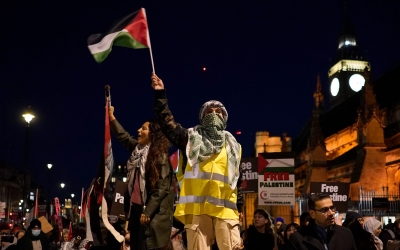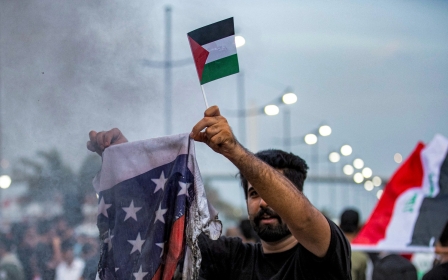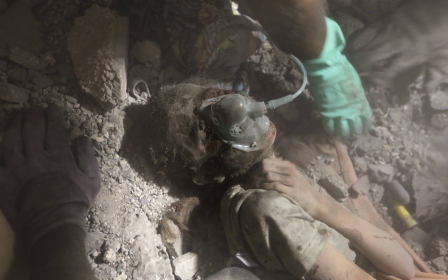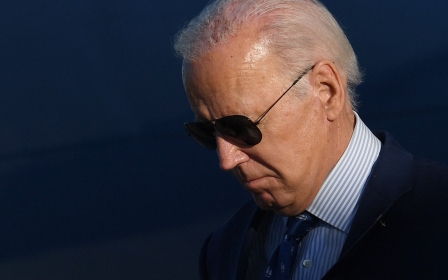Israel-Palestine war: Is the pressure on the Israeli government to end Gaza assault increasing?
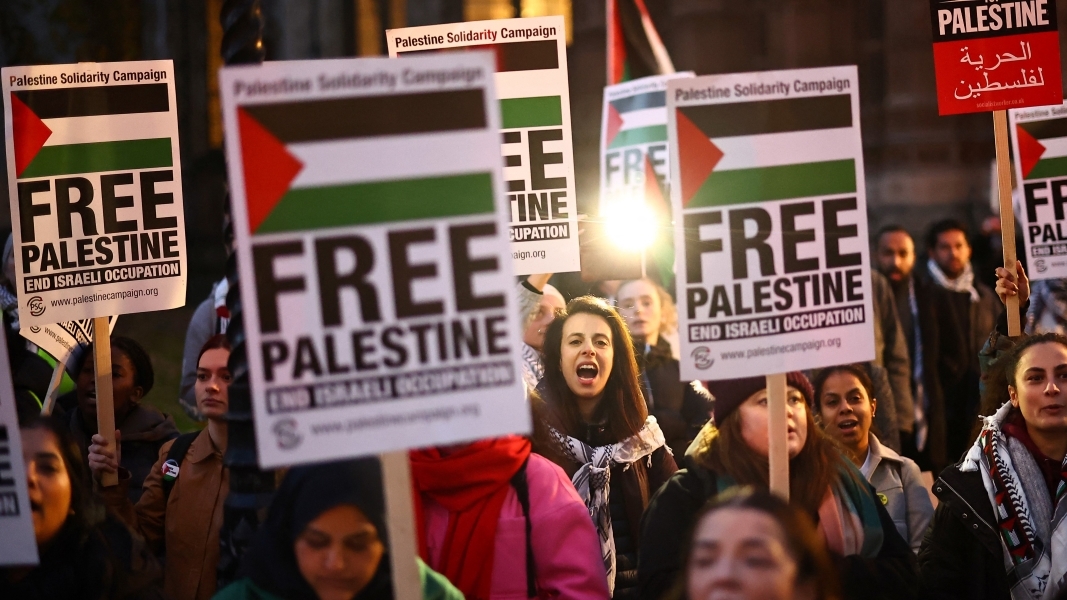
After weeks of Israeli bombardment of Gaza and an ongoing ground invasion, the unwavering support for the state amongst its western allies may remain firm, but cracks are beginning to emerge.
The US, UK, and Germany still fully support Israel's actions in Gaza, despite the large civilian death toll. But elsewhere, attitudes have changed.
French President Emmanuel Macron, for example, has floated the benefits of a ceasefire, while Canadian leader Justin Trudeau has called on Israel to "stop killing babies".
“A major part of that is thanks to the solidarity movement, to the people’s movements, and the demonstrations,” said Palestinian-Israeli human rights activist Ameer Makhoul.
The latest Israeli war on Gaza started when a Hamas-led attack on the state killed close to 1,200 Israelis on 7 October.
New MEE newsletter: Jerusalem Dispatch
Sign up to get the latest insights and analysis on Israel-Palestine, alongside Turkey Unpacked and other MEE newsletters
Israel's relentless military response has killed more than 11,000 Palestinians, including over 4,500 children, and destroyed a significant portion of northern Gaza’s civilian infrastructure.
In the weeks since the start of the war, hundreds of thousands of protesters have filled the streets of many western capitals, expressing support for Gaza, condemning Israel, and demanding a ceasefire.
Anger at Israel's actions is also evident across the international community, with several states suspending their relations with the country as it continues its campaign in Gaza.
'There is going to be a tipping point, it’s going to happen soon'
- Diana Buttu, Palestinian lawyer
This week, Belize suspended diplomatic relations with Israel, joining Bolivia, Colombia and several other Latin American countries that have recalled their ambassadors from the country.
Outside of Latin America, Turkey, Jordan, Chad, and Bahrain have all reportedly withdrawn their ambassadors.
Additionally, South Africa’s ruling African National Congress said on Thursday it would back a motion to close the Israeli embassy in the country.
While these moves are significant, Makhoul says that the power these countries hold is limited.
“Because the world is based on power, not ethics and values, they do not have the strongest point of power to influence,” he added. “They give a push, movement, to the solidarity movement.”
Follow Middle East Eye's live coverage of the Israel-Palestine war
Nevertheless, fissures among some of Israel’s strongest backers are starting to show.
Within the European Union, Ireland, Spain, and Belgium have stood out as outspoken critics of Israel’s bombing and invasion of Gaza, while retaining their condemnation of the attack on 7 October.
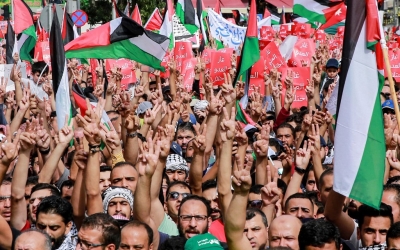
The EU requires unanimous approval from its member states on foreign policy decisions, meaning this small fracture could play a bigger role in the entity’s view of the conflict.
Palestinian lawyer and analyst Diana Buttu told Middle East Eye that while such divisions among the EU in times of global crises are not unprecedented, they are rare.
“The reason that we’re seeing a fissure, or divisions, within the EU is because I just don’t think some countries can defend the indefensible,” she said.
Israeli Foreign Minister Eli Cohen said on Monday that pressure against his state is expected to grow in the coming weeks, adding that his ministry is working to "broaden the window of legitimacy".
One major sign that this window was already narrowing came when Macron told the BBC that he views a ceasefire in a positive light, in contrast with his British and American peers.
Following strong reactions from Israel, he later reiterated his support for Israel’s “right to defend itself,” without backtracking from the comments made on the BBC.
'The people will lead'
Among the general public, support for a ceasefire has consistently been widespread.
Most recently, 68 percent of Americans and 76 percent of British people said they supported a ceasefire, a view corroborated by voters’ attitudes toward their representatives.
US congressional staffers said the onslaught of people calling their representatives to demand a ceasefire caught Democrats off guard. One Democratic aide told the HuffPost they had “never seen” such a disconnect between constituents and Congress.
In the United Kingdom, despite widespread protests and disruptions, a motion calling for a ceasefire in Gaza was defeated in the House of Commons.
In Canada, meanwhile, a parliamentary e-petition demanding the country’s officials work towards a ceasefire reached over 250,000 signatures, the most in the country’s history.
“The people will lead and the leaders are going to follow,” said Buttu. “There is going to be a tipping point, it’s going to happen soon.”
This is not humanitarian'
On Thursday, the UN High Commissioner for Human Rights warned of the risk of genocide in Gaza should the war continue.
Palestinian and human rights organisations have already sued US President Joe Biden, along with two of his cabinet members, for “failing to uphold the country’s obligation to prevent a genocide” and enabling “the conditions for its development by providing unconditional military and diplomatic support".
While refusing a ceasefire, the US did not oppose having “humanitarian pauses” to send aid to Gaza without permanently stopping Israel’s campaign.
Makhoul refutes this concept: “Humanitarian pauses are abuses of the word ‘humanitarian’. Because this is not humanitarian.”
As Israel’s goals in Gaza remain ambiguous, more still may start to doubt this war.
For example, if Israel's claim that Hamas uses hospitals as headquarters and hideouts proves to be false, this would represent a challenge to Israel’s credibility, as well as the unconditional western support offered to it.
Buttu acknowledges the doubts cast over Israel following its raid on al-Shifa, Gaza’s biggest hospital. However, she questions the time it took for pressure to start kicking in.
“If it takes that they have to bomb, invade a hospital [and] fly the Israeli flag on top of the hospital, for diplomats to wake up, these are people who have been asleep for a very, very long time,” she said.
This article is available in French on Middle East Eye French edition.
Middle East Eye delivers independent and unrivalled coverage and analysis of the Middle East, North Africa and beyond. To learn more about republishing this content and the associated fees, please fill out this form. More about MEE can be found here.


